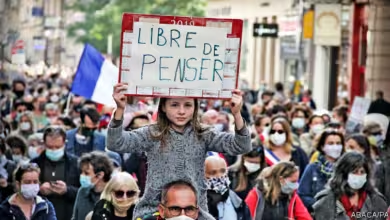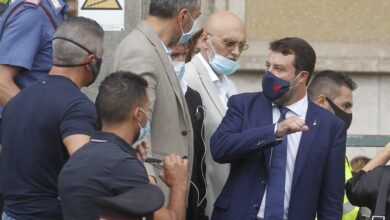The criminal economy…the essence and the secrets

After the end of World War II, the page on direct (military) colonialism was turned, and new methods emerged to dominate the wealth of poor countries, and the concepts of neoliberalism (neoliberalism) and the globalization of the world economy spread.
Applying these concepts/ready-made recipes/to poor people as a field of experiments led to woes and tragedies. Among the changes that these new concepts brought to Iraq is the creative chaos that brings with it all types of crime, including the criminal economy.
The criminal economy, in contrast to the shadow economy, creates products and services that are in principle unacceptable to society (counterfeiting, counterfeiting, pimping, etc.), or allows their production only by a narrow circle of customers (for example, a state monopoly on the production of types of toxic substances ). This activity, in principle, cannot be legal because it is subject to destruction only.
Administrative difficulties in obtaining official authorization for their activities, as well as obtaining licenses, do not affect participants in the criminal economy.
The criminal economy uses capital similar to economic capital as a resource base (i.e. productive capabilities, information technology, revolving capital, etc.), but it has a specific difference in the following two indicators:
1 – Liquidity– a transaction that transfers the owner of the legal business, accomplished in a general manner, meaning the owner becomes anyone who can pay and repay. However, the transformation of the landlord takes place within the confines of the shadow economy, which takes place among his “group,” that is, in a specific circle of people.
2 – Limited rights of the criminal capital owner – The criminal business, nominally, belongs to a specific person, but in reality, he is merely an employee of the leaders of the criminal community who have the right to veto any decisions of the capital owner. In a situation where the life and liberty of the members of that society are dependent on the actions of each of them upon the other, the free will of the Albanians is excluded.
The organizational unit of the criminal economy is not a separate criminal organization or a separate criminal enterprise, but a criminal community.
In contrast to legal cooperation, the criminal economy needs special closed criminal loopholes, since it cannot enter the open international market, as well as lend.
The criminal economy is similar to a factory, where the owners of the company are managers who have no right to decide on the curtailment of its activities or changes to the nature of its production.
These decisions are made at the top of the criminal community, which represents the integrated organizational basis of the criminal economy. Mandatory deduction of funds of a common fund is characterized by the combination of financial flows of units of a single organization. Therefore, the criminal economy has that vitality.
Criminal enterprises are discovered and closed, but they are quickly reorganized because they are not separate independent companies, but divisions of the criminal business.
The nature of relationships changes. Instead of the business network inherent in the shadow economy, relationships of a mafia-clan nature appear. Its difference lies in the principle of its closure, ambiguity, and lack of transparency.
In addition, business networks are horizontal, while clan relationships are vertical, possessing the quality of subordination with a strict system of personal dependence. Networks of relationships leave room for voluntary exit from the network instead of loyalty to the clan, even at the expense of tactical flexibility.
Economic criminology is a branch of criminology that studies criminal phenomena and processes in the economy.
Numerous attempts are being made by criminologists, criminal and civil law scholars, other branches of law, philosophers of sociology, psychology, and economists to bring together legal and criminal economics
.
In the current circumstances that Iraq is experiencing, the criminal economy is surfacing, led by the so-called economic committees affiliated with the mafia parties that hold the authority to manage the state, in addition to the poles of conservative religious authority, who possess enormous financial resources that are not subject to the Financial Supervision Bureau on the pretext that they are legitimate funds and do not allow by investing in the field of material production for development, economic prosperity, and eliminating unemployment!




